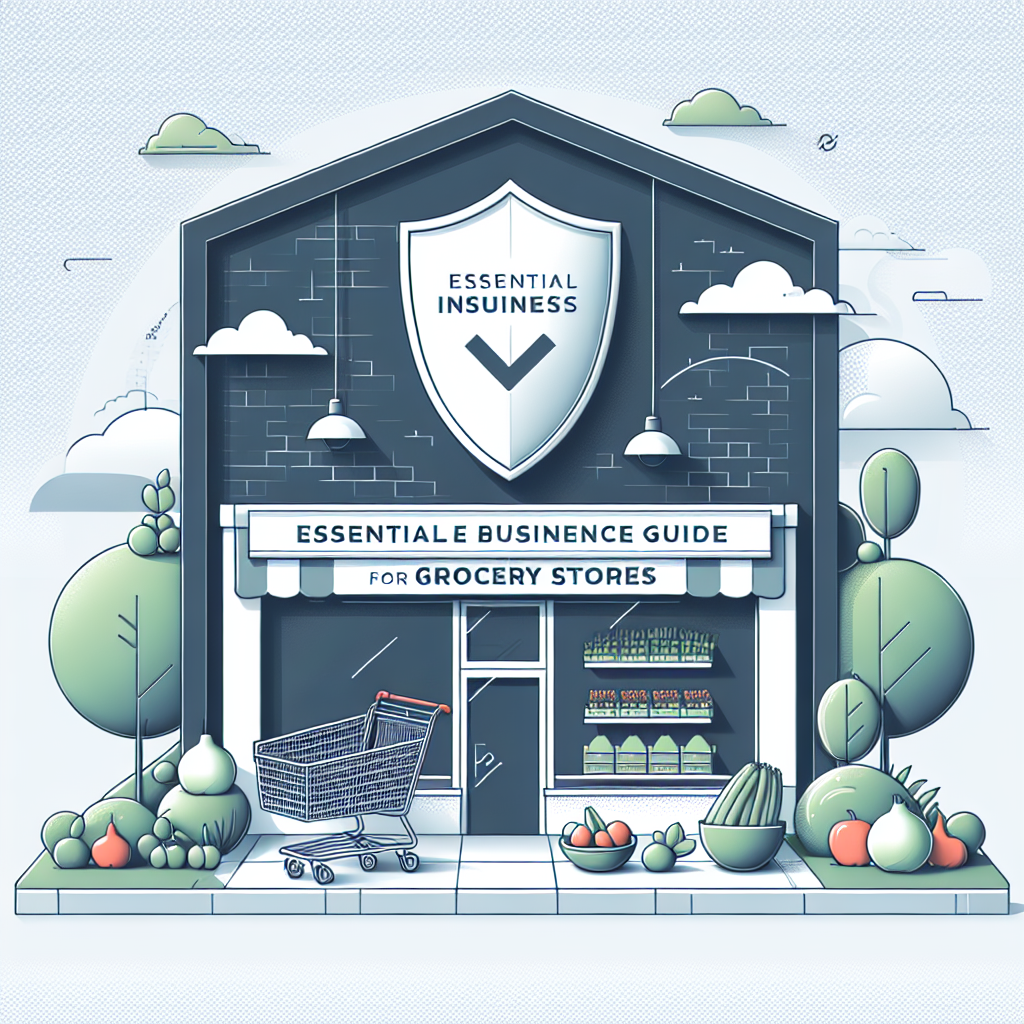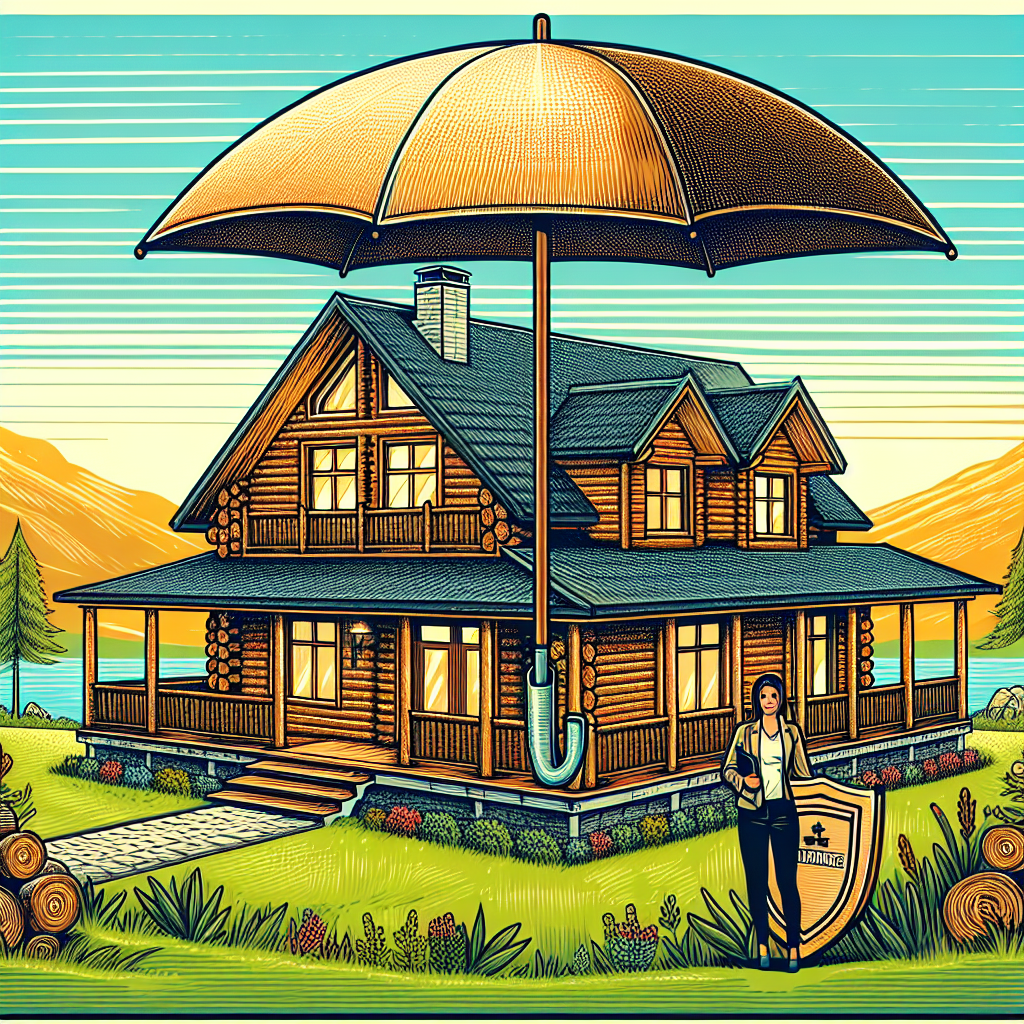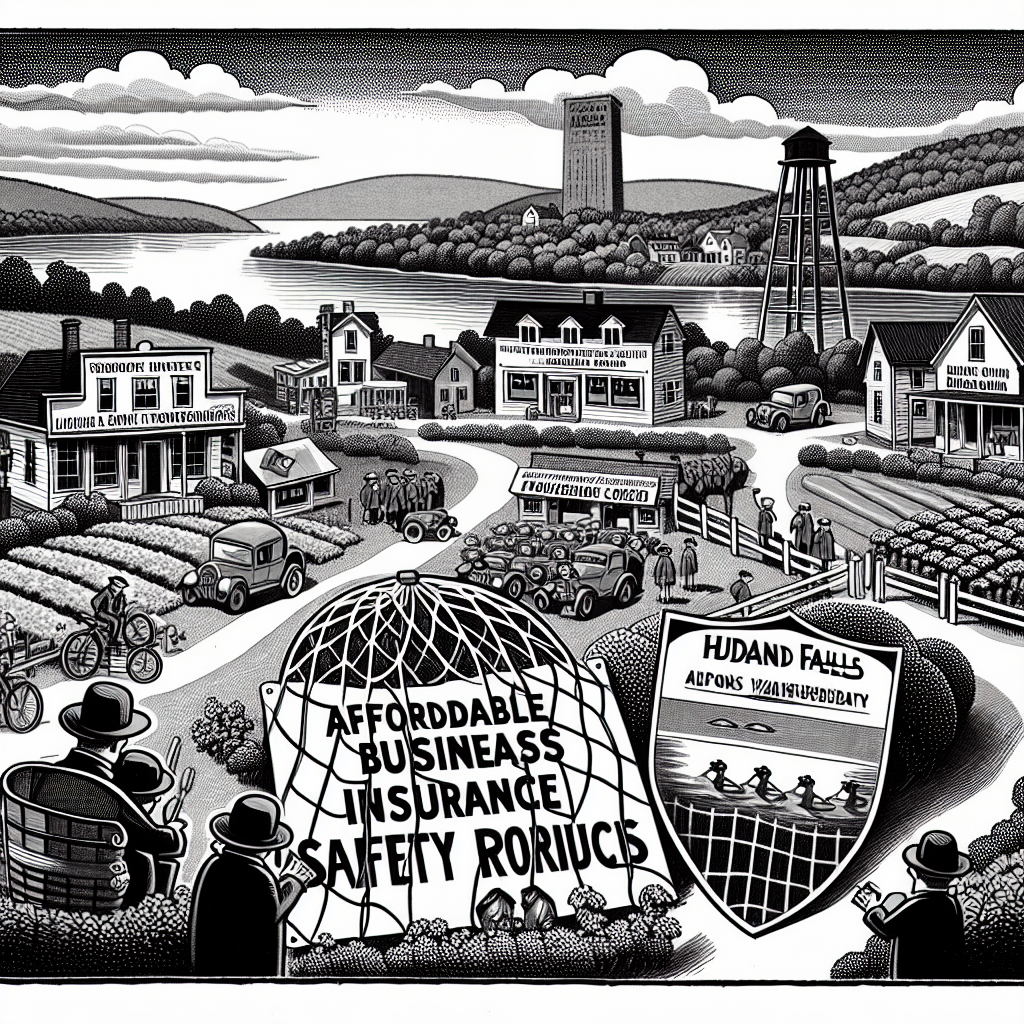Filed under Business Insurance on
Essential Business Insurance Guide for Grocery Stores

The operation of a grocery store requires careful planning and execution, juggling everything from inventory management to customer service. However, one of the most critical aspects often overlooked is ensuring adequate insurance coverage. Without proper business insurance, grocery stores risk facing significant financial loss. This comprehensive guide will navigate you through the essential business insurance policies crucial for grocery stores, helping you protect your investment and ensure sustainability in an unpredictable world.
Why Business Insurance is Crucial for Grocery Stores
Operating a grocery store involves a myriad of risks, from slip-and-fall accidents to product spoilage, theft, and natural disasters. Business insurance provides a safety net, protecting you from unforeseen expenses that could otherwise lead to bankruptcy. Proper insurance coverage ensures that you can continue to serve your community without interruption, even when the unexpected occurs. In essence, business insurance for grocery stores is not just a regulatory requirement but a fundamental component of sustainable business practice.
Types of Essential Business Insurance for Grocery Stores
1. General Liability Insurance
General liability insurance is a cornerstone policy that every grocery store should have. It covers bodily injury, property damage, and personal injury claims made by third parties. For instance, if a customer slips on a wet floor, this insurance will cover medical expenses and potential legal fees. By incorporating general liability insurance, grocery stores safeguard against costly lawsuits that could otherwise drain their financial resources.
2. Property Insurance
Property insurance is another vital type of coverage, protecting your physical assets such as the building, signage, fixtures, furniture, and inventory. Whether it’s a fire, vandalism, or natural disaster, property insurance compensates for damages, ensuring you can quickly resume normal operations. In areas prone to specific risks like floods or earthquakes, purchasing additional coverage under a separate policy may be necessary, as standard property insurance may not cover these events.
3. Workers' Compensation Insurance
With employees running various operations in your store, workers' compensation insurance is a legal necessity in most states. This insurance covers medical expenses and lost wages for employees who suffer work-related injuries or illnesses. It not only protects your workforce but also shields your business from lawsuits related to workplace injuries, thus offering peace of mind for both employers and employees alike.
4. Business Interruption Insurance
If a natural disaster, theft, or another unfortunate event forces your grocery store to close temporarily, business interruption insurance will cover lost income during the closure period. This policy ensures that you can pay ongoing expenses like rent, utilities, and employee wages, enabling your store to withstand financial strain until operations resume. Investing in this insurance is prudent, as disruptions can otherwise lead to significant revenue loss.
5. Product Liability Insurance
Food safety is paramount in grocery stores, and product liability insurance is essential to protect against claims of illness or injury caused by the consumption of contaminated or defective products. This insurance safeguards your store by covering legal defense costs and settlements, maintaining your store's reputation and avoiding financial disaster in the face of product-related lawsuits.
6. Commercial Auto Insurance
If your grocery store offers delivery services or requires regular transportation for goods, commercial auto insurance is critical. This policy covers vehicles owned by your business in case of accidents, theft, or damage. Ensuring your fleet is covered under commercial auto insurance protects against expensive liability claims and helps avoid business disruptions due to vehicle unavailability.
Determining the Right Coverage for Your Grocery Store
While understanding the various types of business insurance for grocery stores is essential, determining the appropriate coverage can be complex. Consider several factors to tailor your insurance package to meet your specific needs:
- Size and Location: Larger stores typically require more comprehensive coverage due to higher risk exposure, and location-specific risks (e.g., natural disasters) influence the types of additional coverage needed.
- Business Activities: Stores that engage in activities like delivery services will require additional insurance, such as commercial auto insurance, compared to those without such services.
- Budget: While insurance is a necessary investment, balancing adequate coverage with affordability helps ensure sustainability.
- Regulatory Requirements: Compliance with state and federal regulations is vital, influencing the minimum insurance coverage needed (e.g., workers' compensation).
Partnering with an Insurance Professional
Engaging an experienced insurance broker can be invaluable in navigating the complexities of business insurance for grocery stores. An insurance professional understands the unique risks your store faces and can craft a comprehensive insurance plan that addresses all potential vulnerabilities. They can also help with claim management and provide insights on minimizing premiums through effective risk management strategies.
Staying Informed on Industry Trends
Staying abreast of industry trends is a prudent strategy for optimizing your business insurance plan. For instance, the increasing focus on sustainability and organic produce might impact your product liability coverage needs. Similarly, technological advancements in grocery store operations may alter your cybersecurity risk profile. Regular consultations with your insurance provider can ensure that your policies evolve in tandem with these industry developments, keeping your grocery store sufficiently protected.
Case Study: A Real-World Example
Consider the case of a mid-sized grocery store in a coastal city prone to hurricanes. After a severe storm caused significant damage, the store's property insurance covered rebuilding costs. However, the owner had also invested in business interruption insurance, which proved invaluable. It covered ongoing expenses during the store's temporary closure, highlighting the importance of comprehensive business insurance for grocery stores in minimizing financial disruption.
Conclusion
Running a grocery store presents unique challenges, but with the right business insurance in place, you can mitigate risks and ensure financial stability. By understanding the essential business insurance for grocery stores and crafting a tailored insurance package, you can protect your assets and enhance your resilience against unforeseen events. Consult with insurance professionals to optimize your coverage and stay informed about industry trends for the best protection. By prioritizing business insurance, you're not just safeguarding your grocery store—you're investing in its future success.





